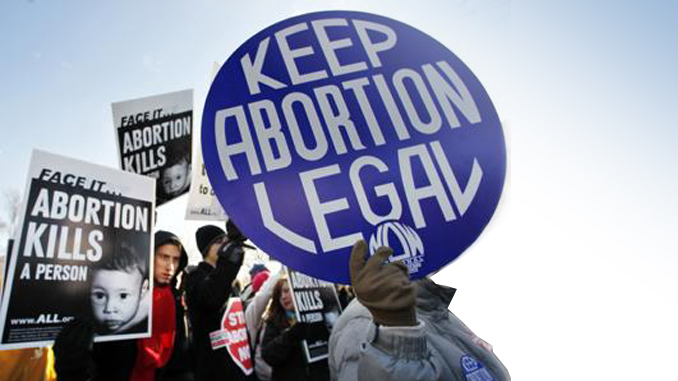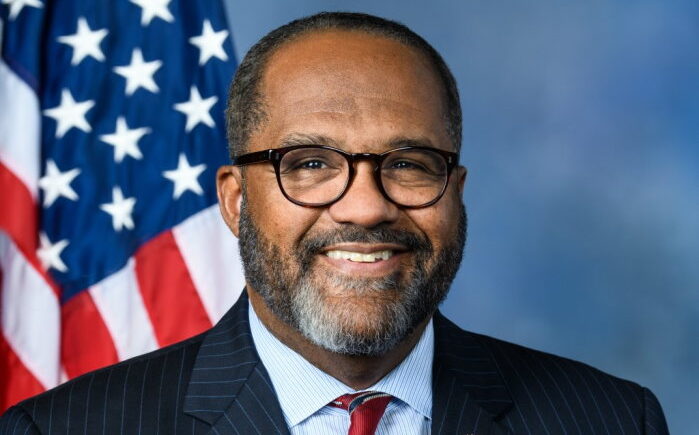
Edwin Buggage
Editor-In-Chief
In the historic 1973 legal case Roe v. Wade, the U.S. Supreme Court ruled that unduly restrictive state regulation of abortion is unconstitutional. But in progressive states like California and New York, abortion restrictions were lifted long before Roe v. Wade. Before the ruling, the vehement argument of pro-life versus pro-choice ensued State by State. Fast forward to 2019, ironically amidst the backdrop of the “Me Too” movement which has steered women on an unprecedented course towards the road to gender equality, and conclude that a woman’s right to keep or abort her unborn child is once again in serious jeopardy.
Across the nation, but primarily in the southern states, anti-abortion legislation is being passed creating a heated debate about the future of abortion in America. Last week, Louisiana lawmakers voted to ban abortions after six weeks of a woman’s pregnancy in what is being called “The Heart Beat Bill.” This bill was signed by Democratic Governor John Bel Edwards, who describes himself as a pro-life Democrat. In Louisiana contrary to what some may think this is less of a partisan issue and although Republicans control the state senate, the measure Senate Bill 184 was written by a Democrat State Sen. John Milkovitch, also in the bill there are no exemptions for rape and incest.
In a statement Milkovitch said defending his pro-life position, “As a citizen, I’m against abortions. I believe every time we commit abortion, we’re committing a murder. When we say you cannot kill unborn babies, we’re standing up for human life, and we are setting some boundaries that we believe are moral and protect our people.”
Tale of Two Sides
This measure is causing controversy and voices are coming out on both sides of the issue. Questions abound regarding the future of abortion in Louisiana and for that matter across the nation. What will be its impact on poor and minority communities and society in general? How will these laws be enforced, what will the penalties be, and what types of social services will be available for those who do not have resources and support when children are born?
“I am deeply disturbed by the prospect of this law becoming effective and the impact on women, particularly innocent young girls who might endure a traumatic rape experience and be forced to carry/raising the child of their rapist.” State Senator Karen Carter, who voted against the measure said on Twitter.
New Orleans City Council-at-Large members Jason Williams and Helena Moreno introduced a resolution condemning the move by the state legislature. “Pushing abstinence and draconian abortion ban (with no exception for rape or incest won’t work. How about some logic in LA. Let’s prevent unwanted pregnancies by providing access to sex ed and contraceptives instead,” Moreno said on Twitter.
“You can’t legislate morality,” says Bishop Tom Watson of Watson Memorial Teaching Ministries. “The governor and all these legislators should not be in the business of telling women what to do with their bodies. I believe it is hypocritical that some of the ant-abortion advocates are talking about the sanctity of life when many of them are for the death penalty and do not see or acknowledge that every day our people are being aborted by lack of opportunities in employment, education and a host of other things we do where our people fall through the cracks because of lack of investment in their futures.”
He continues, “These same people do not want to talk about inequities in healthcare and access. To have solutions, a more holistic approach is needed to continue to fight for the child once it is outside the womb. To think of this pro-life position without investment is shortsighted in my view and leads to many adverse consequences for people without resources. With these kids that are born in the case where people have to keep them, what happens when they don’t have the capacity to care for them? This is a conversation that is not being had. Who cares about these children and what types of interventions will be put in place.”
This bill while not yet enforceable may, if enacted, produce dire consequences for those who do not have the means to leave the state to have an abortion. The question of abortion is not as black and white as portrayed in the mainstream media. In the African-American community many believe in women having the right to choose and should have access to abortions, but that does not mean they are pro-abortion. And because of spiritual and extended family the African-American community adopted and has historically thrived on the Yoruba proverb, “it takes a village to raise a child.”
This point is echoed by Corey Hebert M.D., a pediatrician and medical editor for WDSU-TV 6, a local NBC Affiliate. “I am not pro-abortion, I am pro-choice. I wanted to make that clear.” But he believes that legislators and the Governor are overreaching in this case with the Heartbeat Bill. “When you start to regulate medical procedures you begin to put people’s lives at risk, particularly those who are poor and disenfranchised.”
The verbiage written into the Heartbeat Bill, does not pass the smell test since scientific evidence shows that a woman does not generally know she is pregnant until the 5th or 6th week after missing her menstrual cycle. As a health educator this is something that concerns Dr. Hebert, who says there isn’t a lot of information out there regarding the science around this issue. He notes, “A lot of people don’t know when a heartbeat of a fetus starts. It is usually around the 5th week.” Continuing he says, “A woman generally does not know she is pregnant until after the 5th week, then it is too late to have an abortion as the Heartbeat Bill is written in the State of Louisiana. It is politically divisive because what you are doing in this scenario is basically outlawing abortion.”
Our Choice
While it is true that this bill was passed overwhelmingly in both houses of the legislature; the decision to choose it ultimately up to the citizens of Louisiana. “People have to get involved. People are very passive, they are going to have to get in the streets organize, talk to their legislators because this thing is not going away,” says Hebert.
This issue is one that is divisive, but Hebert sees something positive in it which is bringing people together. “One thing that is good about this is that this runs across lines whether one is rich, poor black and white, Hispanic, Asian – it is a people issue; women of all races and socioeconomic status are affected when it comes to having access to abortions. I feel if people can come together around this issue; then there is hope that can produce results in this and other areas as well.”
Today we as a society are living in times that are historic in many ways. It is necessary for citizens to become civically engaged. This is an issue that can have adverse effects on individuals, families, communities and society as a whole.
It is about not caricaturing one side against the other as the mainstream media often does. There are grey areas where productive dialog must be had to produce solutions. This bill is not an end, but only a beginning that may find its way to the U.S. Supreme Court. We must ask ourselves do we want to turn back the hands of time, or do we want to continue to move forward. This bill passage in Louisiana and states across this country shows that this issue is far from being resolved.
Recommended For You.



Be the first to comment